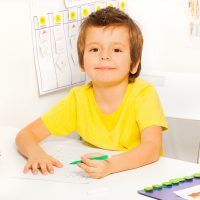Parent-led interventions
-

Technology Matters: Increasing access to evidence-based treatment for child anxiety problems: online parent-led CBT for children identified via schools
Open Access paper from the CAMH journal 2023 Special Issue – “Anxiety problems are extremely common and have an early age of onset. We previously found, in a study in England, that fewer than 3% of children with an anxiety disorder identified in the community had accessed an evidence-based treatment (Cognitive Behavioural Therapy; CBT)”. Iheoma Green (pic) et al.
Read more -

PCIT-ED seems to improve parenting behaviour and affect towards children with depression
Data from a new study show that parenting behaviour and affect improved after completing a dyadic parent–child treatment for depression in young children (aged 3-6 years).
Read more -

Anxiety Disorders – Prof. Cathy Cresswell
Sorry, but you do not have permission to view this content.Read more -

Most Cited JCPP Articles #45 of 60
Most cited JCPP papers #45 of 60: Programs for parents of infants and toddlers: recent evidence from randomized trials
Read more -

Parent-delivered teaching supports children’s early language development
This article is a summary of the paper ‘An evaluation of a parent-delivered early language enrichment programme: evidence from a randomised controlled trial’ by Burgoyne et al. (2018), published in the Journal of Child Psychology and Psychiatry.
Read more -

Parent-led group CBT training can reduce anxiety in children
A brief psychological intervention in which parents and carers are supported in applying cognitive behavioural therapy (CBT) principles in their child’s day-to-day life can lead to good outcomes for child anxiety disorders, according to new research.
Read more -

Children with Anxiety: Which CBT format is best?
McKinnon et al (2018) is the first comparison of the impact of individual CBT, group CBT and guided parent-led CBT, on the severity of symptoms and remission rate for children presenting with an anxiety disorder.
Read more -

The origins of fussy eating in young children
As young children make the transition from a solely milk-based diet to a ‘family diet’, they are gradually introduced to increasing numbers of foods. While some children happily accept novel flavours and textures and enjoy widening their dietary repertoire, many are hesitant or even suspicious about trying new foods.
Read more -

Jonathan Green and Jon Spiers discuss early intervention in autism
Prof. Green has recently published a randomised trial of parent-mediated intervention for infants at high risk for autism.
Read more